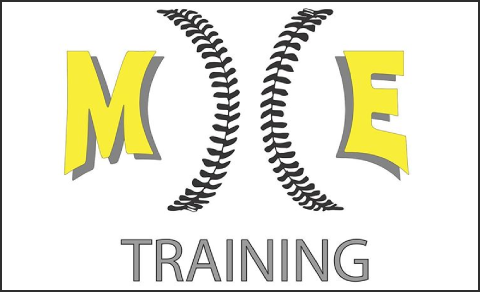(Photo Credit: Bill Landon)
An integral part of any successful team is for its members to have an unselfish, team-first attitude.
Teams are sometimes successful in the win-loss column just due to pure talent, but that is not typically going to be a yearly occurrence. In fact, when a team wins just because of the pure talent it has, it is often without the excitement and exhortation of a tight unit.

The major responsibility of this development is of the Head Coach. There are some teams, of course, that have some players who might be natural leaders, but ultimately the Head Coach is the one to foster that development through out the year.
As a HS coach for 38 years, I had the fortune of coaching a ton of tremendous young men. My most successful and enjoyable seasons were the ones where the players worked together, improved as the season went on and most importantly, played to and beyond their potential.
Overachieving teams have always been my favorite.
Although the Head Coach is the designated leader, the quality of the type of kids you have is the main reason a team develops a team attitude. There are, unfortunately, some cases where the priority of some of the members is to do what is best for themselves rather than the team. This will not only lead toward the lack of team unity, but in most cases, the team will not be playing up to its ability. The usual result in this case will often be an unsuccessful season, which includes a great deal of internal turmoil.
In coaching high school players, I think it is important to develop a program. In my opinion, the program should involve the kids from your middle school team on up to the varsity. Without the foundation of the players on the middle school and junior varsity teams, it is nearly impossible to develop good varsity teams on a consistent basis.

The players need to feel a part of something. It should be something they take pride in and want to share with their teammates, school community and parents. It is about more than one player on one team or the success of one team in the program. It is about the entire program and its development.
Besides having a great group of kids in your program, it is critical that you have supportive parents. The parents may not always agree with every coaching decision or the amount of playing time that their son gets, but it is critical that they understand the ultimate goal of the team and the program. In most cases, the main reason a team is comprised of great kids is because they have great parents. Good parenting sure does help those players to be good teammates, accept their roles and understand the ultimate goal of the team.
Another critical aspect of having an outstanding program, which leads to successful teams, is your coaching staff. I learned a long time ago that the people you surround yourself with are extremely important. Having a staff that understands the team concept and has a good rapport with kids greatly adds to successful teams and programs.
Through out my years at SWR, we were fortunate to work with outstanding coaches, players, parents and administrators. As the Head Coach, it is your responsibility to instill your philosophy in order to have a cohesive program. You should also teach individual coach in your program to use his own special talents and personality to get the most out of the players on the teams.

It is our responsibility as coaches to allow each and every member of the team to feel he has an important role. It is critical for each and every coach to be sure that each and every player understands that role. Each player should feel that he is contributing to the team in some way.
We have always felt it was important to have all team members–starters, part-time players and those that get little playing time to all share in team responsibilities equally. These responsibilities include bringing out equipment, maintaining the field, working the scoreboard, keeping pitching charts and any other tasks that need to be taken care of on a daily basis.
As a Head Coach, you should also remember to be yourself as a person. Trying to imitate a personality or even a coaching style of others will typically come out to your players as insincere and disingenuous. You will have a much more positive experience and a sense of accomplishment by developing a tight, cohesive team.
The wins and losses will take care of themselves.













Marcelo Luc
What an excellent article, a lot of coaches, players, and parents need to read this. I always teach my son that it’s a team sport not an individual sport. Each player has a role. Be it the right fielder, INF, Pitcher, or beach players who back up the starters, every player matters, cause you never know when you will be called up to the plate to do something to help the team win a game. I here has been pl nay of times that I did not agree with what a HS coach, or travel coach did during a game, but one thing I know is he is the coach and he has a reason for his decisions.
Marcelo Luc
correction to last sentence
*There has been plenty*
dquaid
Great article, Coach Mignano.
As a coach, how do you feel about speaking to each individual player about the definition of their role on the team? If you think it is a good idea, then how often should a coach do that?
Sal Mignano
Doug– I’m glad to know that you enjoyed the article. I think it’s of the utmost importance to let each player know their role. Of course, it is possible that role may change during the season, but by letting them know before the season it allows them to understand your plans for them. It prevents any surprises during the season regarding playing time and other important aspects of being an excellent teammate. In some cases, the conversation you have with a player before the season may lead to the two of you mutually agreeing that he should not be a member of the team. If the player is not willing to accept that role, it may turn into poor team chemistry as the season goes on.